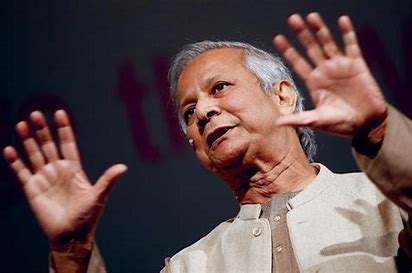
..
UK Independent newspaper's report: Chattogram schoolteacher says she used to feed her family three meals a day before, now barely manages two
- Summary:
- A schoolteacher in Chattogram told The Independent, UK that rising costs have reduced her family's meals from three to barely two a day.
- Many, like Sehnaz, express disappointment due to economic hardships and instability.
- Critics argue that the Yunus administration has not improved the situation and has failed to set a timeline for new elections or protect minorities, leading to continued violence and emigration.
Sehnaz Khan, a primary school teacher in Chattogram, shared with UK journalist Alisha Rahaman Sarkar that she used to provide her family with three meals a day. However, due to rising costs, she now struggles to manage even two meals.
“I used to be able to feed my entire family three meals a day. Given the cost of rice and other necessities, we barely make it to two meals,” Sehnaz told Sarkar, a reporter for the Independent. Sarkar, who focuses on human rights, gender, politics, and minorities in Asia, recently interviewed a cross-section of Bangladeshi people for her report titled “Has Bangladesh’s revolution been a success?” published on 30 December 2024.
As the sole breadwinner for her family of four, Sehnaz initially felt optimistic about the future. However, soaring food prices and frequent electricity cuts have dimmed her hopes. She now longs for the past, telling the Independent that if her family cannot have a better future, she wishes they could relive the good old days.
Sehnaz is not alone. Many Bangladeshis, as mentioned in the Independent report, believe there has been too much focus on righting past wrongs. “These are misplaced priorities,” says Raju Poddar, a clothing shop owner in Dhaka. “No one wants to remember the brutal past, but the government needs to focus on making the present peaceful. The never-ending protests and attacks need to stop.”
Rafiqul Islam, a 19-year-old Dhaka University student who participated in the demonstrations that led to Sheikh Hasina’s downfall, expressed disappointment with the Yunus administration’s handling of the economy and rising tensions with India, a key ally in Bangladesh’s 1971 liberation. “We knew it would not be a miraculous change, but it is not getting any better,” he told the Independent. “We need an elected government.”
Islam pointed out that the Yunus administration lacks legal justification for its existence. This irregularity, supported by the army and public trust, could lead the country into chaos once initial optimism fades.
Critics argue that beyond economic troubles, Yunus has failed to set a timeline for new elections and has not done enough to protect religious minorities or members of the Awami League. The targeted violence has driven hundreds of Bangladeshi minorities and former ruling party members to seek refuge in India. Authorities report 88 cases of violence against minorities in the five months since Hasina’s ousting, with widespread coverage in India.
“The transitional government could have done more to establish order and provide security for Hindu communities after Ms. Hasina’s ouster,” said Dr. Ian Hall, a professor at Brisbane’s Griffith University, to the Independent. “The violence we have seen was hardly a surprise.”



